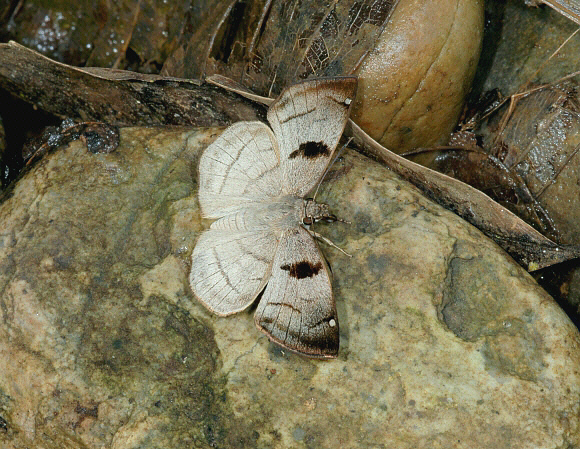
Introduction
The Pyrginae, popularly known as Flats or Spreadwings, are a cosmopolitan subfamily distributed across temperate and tropical habitats throughout the world. In the Americas there are 990 species, of which about 580 are assigned to the tribe Pyrgini.
The genus Antigonus comprises 9 small to medium sized species, characterised by having a pointed fw apex, slight concavities in the outer margins of fore and hindwings, and a habit ( shared with several other Pyrgine genera ) of holding the forewings such that the apical area is folded downwards at an angle of about 30 degrees.
Antigonus decens occurs throughout the lowland rainforests of Brazil, Peru and Ecuador.
Habitats
This species appears to be confined to lowland rainforests at altitudes from sea level to about 500m.
Lifecycle
The lifecycle appears to be unrecorded. Generally, Pyrgine butterflies lay their eggs singly on either the upperside or underside of leaves. The larvae are typically dull green or brownish, with thin longitudinal lines along the back and sides, and with black shiny heads. They feed typically on low growing plants, but a small percentage feed on the leaves of bushes or trees. The pupae are usually dark and smooth, with the wing cases in a contrasting tone or colour. They are normally formed within silken tents formed by spinning together the leaves of the foodplant.
Adult behaviour
My only observations of this attractive little skipper have been of male singletons visiting sandbanks. In such situations they imbibe dissolved minerals from algae-covered rocks or damp sand, particularly in areas soaked in urine. When not feeding they sit on the leaves of sedges or other low herbage, with wing tips downfolded in the manner typical of the genus.
